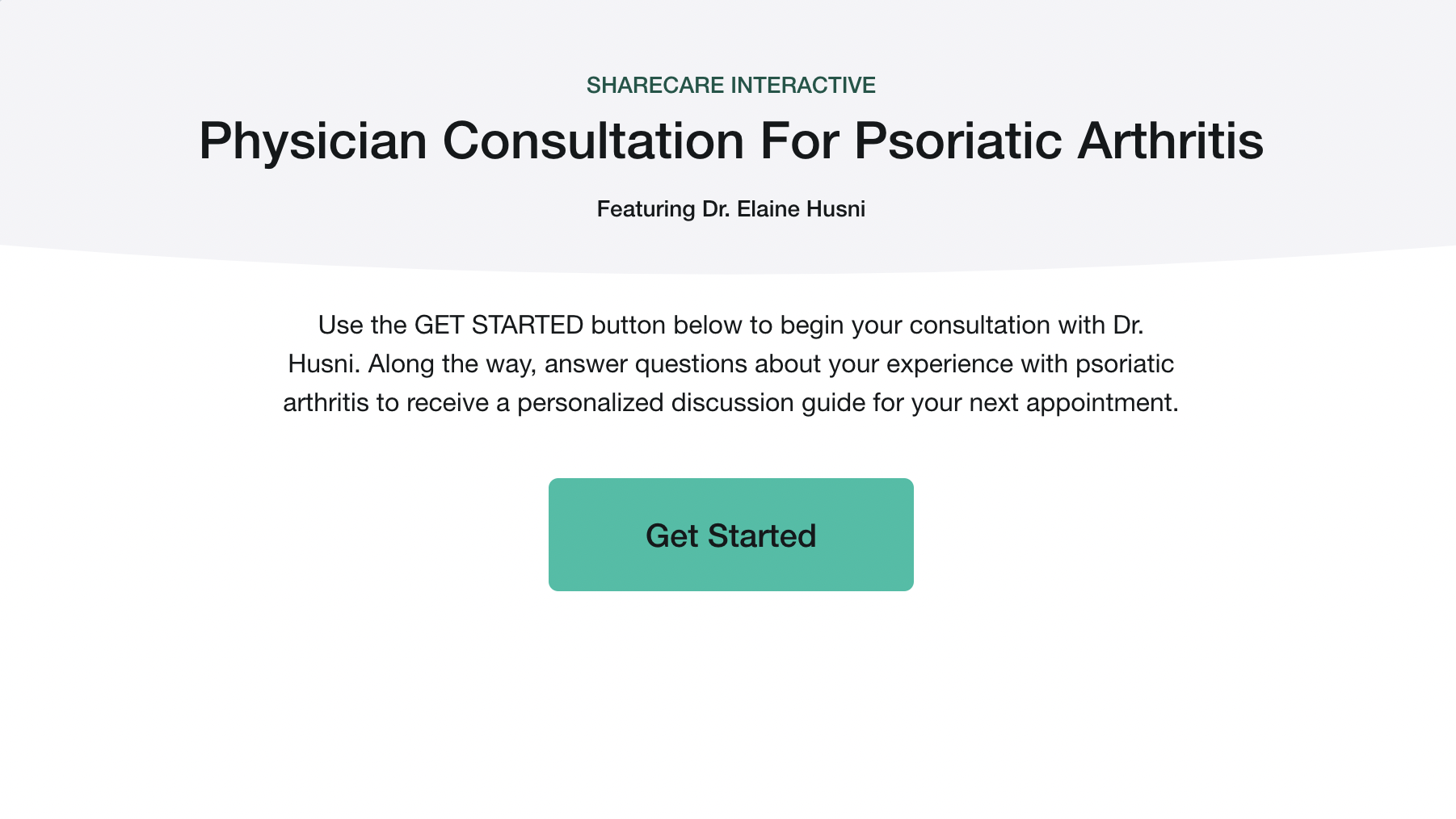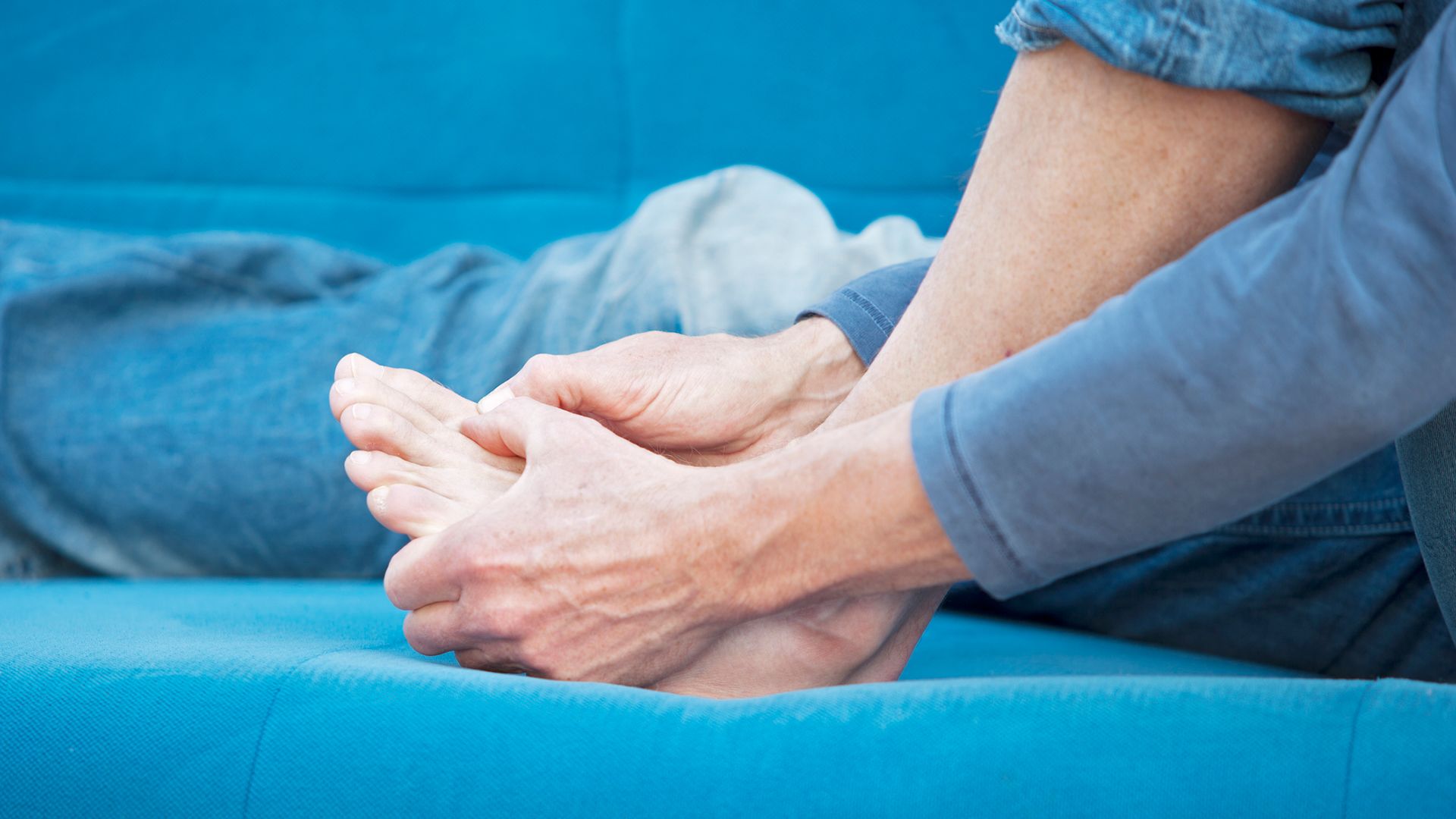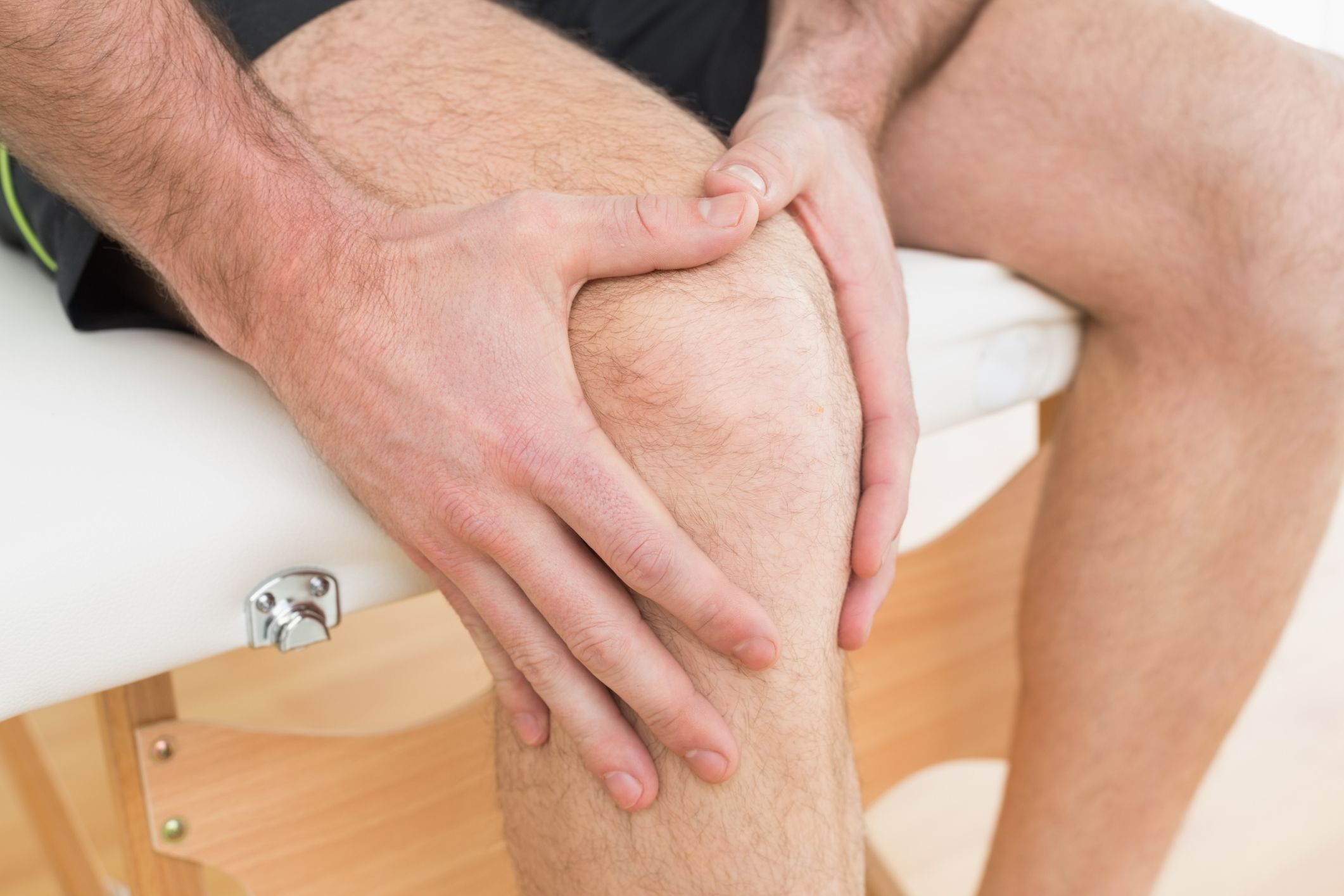Updated on October 16, 2024
Three people living with psoriatic arthritis share what it means to adapt and find understanding.

Transcript
The worst thing someone can do is make you feel guilty for putting your body first. [MUSIC PLAYING]
ELAINE HUSNI: Hi, everyone. I'm Dr. Elaine Husni. I'm vice chair of the Department of Rheumatic and Immunologic Diseases at the Cleveland Clinic,
and I am joined here today by Aimee, Elizabeth, and Jim, who are living with psoriatic arthritis.
So welcome, everyone. How has it been to adapt to psoriatic arthritis? Let's say if I plan something, because I
hate breaking promises to my kids, I will take it easy a few days prior. Like, I took them to Six Flags three times in the last 30
days, because I bought passes. Phew. So I was-- you know, in between that, I was doing nothing. You learn your own body, your own limits, physically,
emotionally, and with stress. It's really good to be real mindful of that so that you can kind of prepare, especially
if you have something coming up, so you don't miss it. I try to go out, and I go for walks as often as possible.
Granted, there are some days that I'll go out, and maybe I might only walk a half a mile.
And my knee will start bothering me, and I'll have to go home. Aimee? I think, for me, it's more about, like,
modifying my expectations. Unless you go through it, it-- you cannot understand. And there was a good amount of time
that I felt, like, very not understood, and it kind of just was this-- it just-- it just caused a lot of stress, which,
therefore, causes flares. So I just figured the only opinion that matters in this situation is really mine.
I find that I encourage people to bring their friend or their spouse or their loved one to the visit,
you know, so that they understand, you know, how that visit is and, you know, what I'm telling them and about the treatment.
And so sometimes that's been really helpful, if they're willing to, you know, to do that. So they're just not hearing it from you,
but they're, you know, in the moment, you know, in the office. Everybody wants to help you, I'm sure, but I don't think there's a good way
to tell people how to do that. You don't understand a person with psoriatic arthritis unless you have it yourself.
So you have to just listen to the person. Be open. I'm a person that gets really guilty. Like, I get-- I feel such guilt about things,
so the best thing that someone in my life can do is not make me feel guilty for not being able to show up. It's crazy.
One of the things that is difficult when it comes to this is not only is it different every day, but it's different where it is.
And it's one of those invisible diseases. Sometimes I'm like, man, if I was in a wheelchair, people would be like, ah, OK, versus,
look, she's lifting weights. She's fine. Why does she have a handicap sign? That is really hard, because you feel like you're explaining different things every time,
you know. Yes. You know, this is the same thing I have. Yes. Yeah. As may know, there are so many new treatments
for psoriatic arthritis. We did not expect that we were going to have, you know, more-- more treatments than I can count on my fingers now.
What do you think you look forward to, hearing this? They are narrowing it down closer and closer to-- to where
this disease is caused from. I know that they're going to figure it out, if not in my lifetime, in my kids' lifetime.
I'm positive of that. I really do have that hope. I smiled instantly, because it's nice knowing that if something doesn't work,
you have so many options, because back in the day, there was like three. And when I see the commercials and knowing that there's so many out there, it's a hope,
and hope is everything. I have tried several different medications, even though I had this short time diagnosis.
But it is good to know that there are so many available out there, because, you know, as Jim said,
hope. I used to be very focused on the clinical trials and the effect of the drugs, but what we are really learning now
are-- is from people like you. We're looking at, is it helping your fatigue? Are you moving better?
You know, is your mood, you know, improving? And it's just wonderful for me to see all these added, you know, what we call outcome measures that
are included. So it's really important to have, you know, people like you that are articulate to really voice some of these,
because this is where we learn. This is where we can work together as partners.




